Following the death of North Korean dictator Kim Jong Il, these are the dictators who continue to rule their nations. Their reign has often been questioned and criticised, with many of them being accused of human rights violation.
Robert Mugabe
President of Zimbabwe, Robert Mugabe, is one of Africa's authoritarian leaders. Mugabe's policies have progressively evoked denunciation from both domestic and the international community.
While the president's critics damn his reign of terror and accuse him of being an extremely poor role model, his supporters pronounce him as a true Pan-Africanist.
Mugabe's long reign in Zimbabwe has, however, weakened along with his popularity in recent years, as his nation's economy continues to collapse.
Many experts believe that Mugabe is to blame for Zimbabwe's economic freefall.
...
Fidel and Raul Castro
Image: Former Cuban leader Fidel Castro with his brother, Cuba's President Raul Castro, during the closing ceremony of the sixth Cuban Communist Party congress in HavanaPhotographs: Desmond Boylan/Reuters
The Cuban revolutionary Fidel Castro held the position of prime minister from 1959 to 1976, and then president from 1976 to 2008.
Castro has been a controversial and highly divisive world figure. While his critics accuse him of being a dictator who has overseen multiple human rights abuses, back home he is lauded as a champion of anti-imperialism and humanitarianism by his supporters.
However, Fidel Castro has had a significant influence on the politics of a several world leaders, like Nelson Mandela, Hugo Chavez and Evo Morales, and he is widely idolised by many leftists, socialists and anti-imperialists across the world.
On February 24, 2008, his brother, Raul Castro was announced as Fidel's successor as president of Cuba.
In his first speech as Fidel's successor, Raul proposed that his brother continue to be consulted on matters of importance and socioeconomic development of the country.
...
Bashar al-Assad
Bashar al-Assad is the president of Syria and regional secretary of the Ba'ath Party. Al-Assad was elected in 2000 and re-elected unopposed in 2007.
Bashar al-Assad has been criticised for a disregard for human rights, economic lapses and corruption in his domestic policy. He was also criticised for Syria's presence in Lebanon that ended in 2005, which partly led to the US putting sanctions on Syria.
The Syrian president has snubbed UN claims of bloody repression in his country. Bashar al-Assad rebelliously rejected allegations from around the world that his government was waging a crackdown on protesters.
...
Ayatollah Ali Khamenei
Ayatollah Ali Khamenei is the Supreme Leader of Iran and the figurative head of the Muslim conservative establishment in Iran.
The biggest challenge he faced as a leader was the mass protests following the June 2009 presidential elections.
Khamenei is widely regarded as the nominal head of the country's conservative establishment. He has been described as one of the three defining influences of the revolution.
In his inaugural address as president in 1981, Ayatollah Khamenei vowed to end "deviation, liberalism, and American-influenced leftists", in a statement that set the tone for his leadership. Reformists have criticised his use of "extra-legislative power".
Ayatollah Ali Khamenei has attacked Western powers who have criticised the rights record of the Islamic Republic for hypocrisy by economically oppressing people in third world countries.
Khamenei supported the persecution of Baha'ais and signed documents recommending several methods of oppression and ways of decreasing their influence.
Those believed to have insulted Khamenei have been arrested or punished on a less formal basis such as by being beaten by vigilantes.
...
Hugo Chavez
Image: Venezuelan President Hugo Chavez at a press conference in CaracasPhotographs: Juan Barreto/AFP/Getty Images
Hugo Chavez is the president of Venezuela and has held the position since 1999.
Chavez is a self-professed anti-imperialist and vocal critic of neoliberalism and capitalism. He is also a prominent opponent of the United States's foreign policy.
Many of his critics accuse him of excessive personal expenses for himself, his family and friends. The involvement of a number of his immediate family members in Venezuelan politics has also led to accusations of nepotism. Chavez, however, denies this.
Amnesty International has criticised the Chavez administration for targeting critics following several politically motivated arrests.
Human Rights Watch has criticised the Venezuelan president of engaging in "discriminatory policies that have undercut journalists' freedom of expression."
...
Ali Abdullah Saleh
The first president of of the Republic of Yemen, Ali Abdullah Saleh is also the longest-serving president of Yemen, ruling since 1978.
He signed an agreement in November 2011 that called for him to relinquish office by February 2012.
Saleh had ordered the execution of 30 officers on August 10, 1978, who were charged with being part of a conspiracy against his rule.
Ali Abdullah Saleh was a long-time ally of Iraq's Saddam Hussein and supported Hussein's invasion of Kuwait in 1990.
Following the Tunisian revolution early this year, which resulted in the overthrow of the long-time Tunisian president, opposition parties started leading protesters and demanding Saleh to end his three-decade-long rule.
He was criticised for lack of democratic reform, widespread corruption and human rights abuses carried out by him and his allies.
After facing a major national uprising on February 2, 2011, Saleh announced that he would not seek re-election in 2013, but would serve out the remainder of his term.
On March 22, Saleh warned that any attempt at overthrowing him would result in civil war.
...
Teodoro Obiang Nguema Mbasogo
Photographs: Reuters
Teodoro Obiang Nguema Mbasogo has been the president of Equatorial Guinea since 1979. Obiang overthrew his uncle on August 3, 1979, in a bloody coup d'etat.
Domestic and international observers consider his regime to be one of the most corrupt, ethnocentric, oppressive and undemocratic states in the world.
Equatorial Guinea is now essentially a single-party State, dominated by Obiang's Democratic Party of Equatorial Guinea. The constitution grants Obiang wide powers, including the power to rule by decree.
Abuses under Obiang have included unlawful killings by security forces, government-sanctioned kidnappings, torture of prisoners and detainees by security forces, life threatening conditions in prisons and detention facilities, arbitrary arrest, detention.
...
Omar Hassan al-Bashir
Omar Hassan al-Bashir is the current president of Sudan. He came to power in 1989 when he, as a brigadier in the Sudanese army, led a group of officers in a bloodless military coup that ousted the government of Prime Minister Sadiq al-Mahdi.
However, despite receiving international criticism regarding internal conflicts, Omar al-Bashir has managed to achieve economic growth in Sudan.
During his presidency, there have been several violent struggles between the Janjaweed militia and rebel groups such the Sudanese Liberation Army and the Justice and Equality Movement in the form of guerrilla warfare in the Darfur region. The civil war has resulted in over 2.5 million people being displaced, and diplomatic relations between Sudan and Chad being at a crisis level.
Al-Bashir is a controversial figure both in Sudan and worldwide, and is accused of genocide, crimes and war crimes in Darfur.
Latest leaks from WikiLeaks allegedly reveal that the Sudanese president had embezzled State funds amounting to US$ 9 billion.
...
Alexander Lukashenko
Photographs: Reuters
Alexander Lukashenko has been serving as the president of Belarus since July 20, 1994. American political leaders increasingly began to refer to Belarus as "Europe's last dictatorship"
Lukashenko's critics use the term Lukashism to refer to his political and economic system implemented in Belarus. The term also refers to his authoritarian political ideology based on personality cult and nostalgia for Soviet times among certain groups in Belarus.
Lukashenko continues to face domestic opposition from a coalition of opposition groups supported by the United States and Europe.
Lukashenko's relationship with the EU has been strained, in part by choice and in part by his policies towards domestic opponents. Lukashenko's repression of opponents has earned him the moniker 'Europe's last dictator' and resulted in the EU imposing visa sanctions on him and a range of Belarusian officials.
Recently, Lukashenko's relationship with Russia, once his powerful ally and vocal supporter, significantly deteriorated.
...
Islam Karimov
Islam Karimov is the first president of Uzbekistan, serving since 1990.
In 1995, Karimov extended his term till 2000 through a widely criticised referendum.
Uzbekistan hosted an 800-strong United States troop presence at the Karshi-Khanabad base, also known as "K2", which supported US-led efforts in the 2001 invasion of Afghanistan. This move was criticised by Human Rights Watch which said the US government subordinated the promotion of human rights to assistance in the war in Afghanistan.
The Karimov regime has been accused of marginalising politically dissident Muslims and religious leaders who have criticised his human rights abuses through rhetoric of anti-terrorism. The government has imprisoned thousands of Uzbeks for Islamist extremism.
Craig Murray, the British ambassador from 2002 to 2004, described widespread torture, kidnapping, murder, rape by the police, financial corruption, religious persecution, censorship, and other human rights abuses.
For several years, Parade magazine has selected Karimov as one of the world's worst dictators, citing his tactics of torture, media censorship, and fake elections.
...
Gurbanguly Berdimuhamedow
Image: Turkmenistan's President Berdimuhamedov addresses the Millennium Development Goals Summit at United Nations headquarters in New YorkPhotographs: Reuters
Gurbanguly Berdimuhamedow has been the president of Turkmenistan since December 21, 2006. His self-given title 'Arkadag', means patron.
His detractors call his a torture-approving totalitarian dictator.
However, the president of Turkmenistan enjoys the support of two of the biggest importers of Turkmen natural gas -- Russia and Iran. He is also supported by countries like Kazakhstan and Saudi Arabia.
In Turkmenistan, Berdimuhamedow does not have to deal with a lot of opposition as it is virtually banned.
As the country's minister of health, Berdimuhamedow supervised one of the worst healthcare infrastructures in Central Asia. He denied a large section of the population healthcare by closing all hospitals outside the capital city and replacing more than 15,000 trained doctors with military physicians.
Continuing the tradition of Turkmenistan's late president Saparmurat Niyazov, Berdimuhamedow arrested, detained without trial, tortured, exiled, and killed his political opponents.
Berdimuhamedow has also not freed political prisoners wrongly imprisoned under Niyazov's regime.
...
Nursultan Nazarbayev
Photographs: Reuters
President Nursultan Nazarbayev has held the top post of his country, Kazakhstan, since the nation's independence in 1991 from the Soviet Union.
However, the Organisation for Security and Cooperation in Europe has called the last presidential election held in the country as falling short of international democratic standards.
Nazarbayev has been accused by some NGOs of merely paying lip service to anti-corruption efforts. They claim that in spite of Nazarbayev becoming the Organisation for Security and Co-operation in Europe chair in 2010, he has done little to address human rights abuses and widespread corruption.
Nazarbayev's family has been in the past entangled in a series of investigations by Western governments into money-laundering, bribery, and assassinations.
According to World Watch, in 2007, the US State Department listed a host of human rights abuses reported in Kazakhstan. 'Some of the abuses included: Severe limits on political freedoms and freedom of speech; detainee and prisoner abuse; arbitrary arrest and detention, particularly of government opponents; lack of an independent judiciary; pervasive corruption; discrimination and violence against women; and trafficking in persons,' the magazine said.
A recent New York Times story claims Navarbayev's regime has been paying Washington, DC, think tanks to issue glowing reports on the country that largely ignore its glaring shortcomings in political freedom and human rights, and it also claimed that the Nazarbayev regime has even been alleged to have made illegal payments to as-yet-unidentified members of Congress seeking to gain their favour, World Watch reported.
...
Ramzan Kadyrov
Photographs: Reuters
Former Chechen rebel and current president of Chechnya, Ramzan Kadyrov has come under heavy criticism from the international media for allegations of corruption and human rights violations.
According to some sections of the media, Kadyrov has been personally implicated in several instances of torture and murder. It has been claimed that a number of Chechens opposed to Kadyrov have been assassinated, while several witnesses report the existence of a 'Murder List'.
On 13 November, 2006, Human Rights Watch published a paper on torture in Chechnya that had been prepared for the 37th session of the United Nations Committee Against Torture. The paper dealt with torture by personnel of the Second Operational Investigative Bureau units under the command of Ramzan Kadyrov, and torture in secret detentions.
German human rights group the Society for Threatened Peoples, which branded Kadyrov a "war criminal", has alleged that up to 75 percent of recent incidents of murder, torture, rape and kidnapping in Chechnya have been committed by Ramzan's paramilitary forces.
According to the International Helsinki Federation for Human Rights, many illegal places of detention exist in the Chechen Republic; most of them are run by Kadyrovites who are often accused of working as a death squad against Kadyrov's enemies.
...
Vladimir Putin
Image: Russian Prime Minister Putin at a meeting with organisers of the All-Russian People's Front in MoscowPhotographs: Reuters
An ex-KGB spy, Vladimir Putin is the present prime minister of Russia, as well as chairman of United Russia and Chairman of the Council of Ministers of the Union of Russia and Belarus.
The first major challenge to Putin's popularity came in August 2000, when he was criticised for his alleged mishandling of the Kursk submarine disaster.
During his term, Putin has been widely criticised for what many commentators consider a wide-scale crackdown on media freedom in Russia.
However, international criticism of Russia's human rights record has remained muted, with the European Union failing to challenge Russia. The organisation has called Putin a repressive and brutal leader on par with the leaders of Zimbabwe and Pakistan.
According to the The Telegraph, critics said his return to the Kremlin for a third time in 2012 with the scope to rule until 2024 meant the country was likely to be rocked by social unrest in the years ahead.
More recently, Putin accused the United States of stirring up protests against his 12-year rule. He claimed that foreign countries were spending hundreds of millions of dollars to influence the outcome of elections in Russia.
...
Isaias Afewerki
Image: Sudan President Omar Hassan al-Bashir with the Eritrea's president Isaias Afewerki (L)Photographs: Mohamed Nureldin/Reuters
Isaias Afewerki is the first and current president of Eritrea.
Afewerki was elected president in April 1993 and also became the chairman of the national assembly. This gave Afewerki control of both the executive and the legislative branches of government.
Afewerki, in the years that followed, gradually amalgamated his power over almost every aspect of Eritrean life. He served additionally as commander in chief of the army and as chairman of the country's sole political party, the People's Front for Democracy and Justice.
Afewerki canceled the 1997 presidential elections and in 2001 virtually closed the national press.
He was also accused of arresting and charging with treason several eminent opposition leaders. His detractors criticise his regime of using the long-standing border dispute with Ethiopia to avoid implementing Eritrea's constitution, which had been ratified in 1997.
Afwerki, in 2005, banned helicopter flights by United Nations Peacekeeping Forces along the Eritrean-Ethiopian border, saying that not enough was being done by the UN Security Council to resolve the dispute.

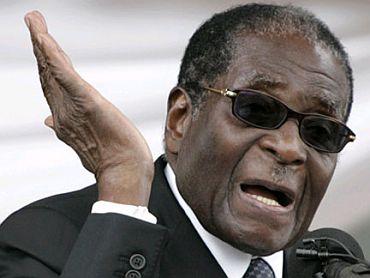
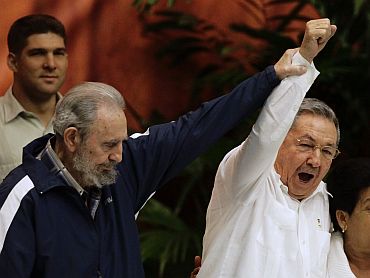
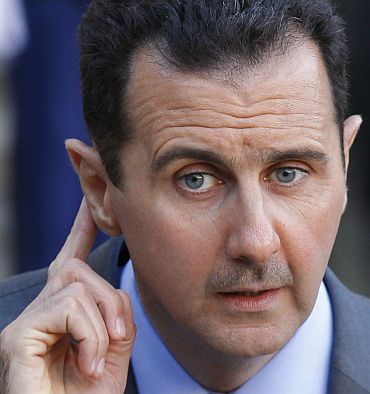
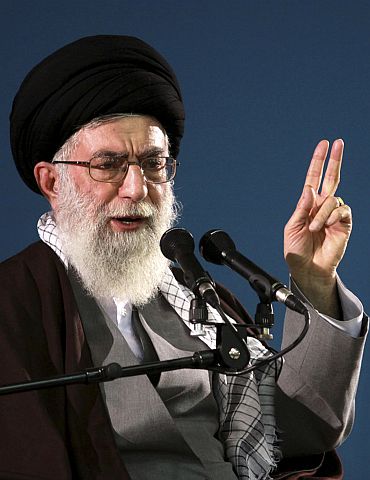
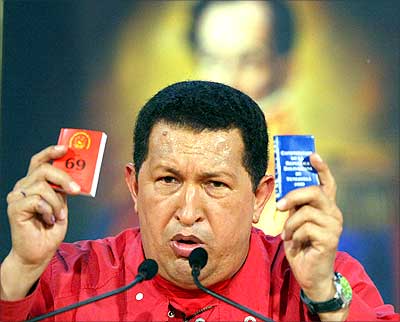
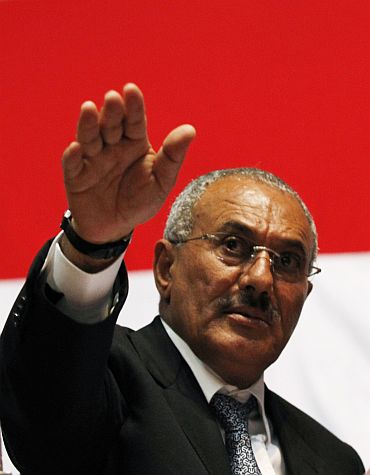
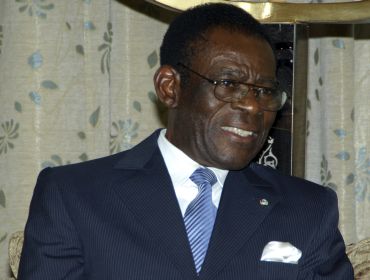
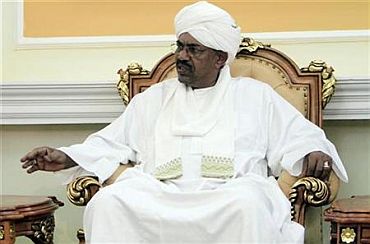
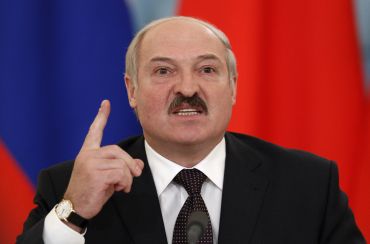
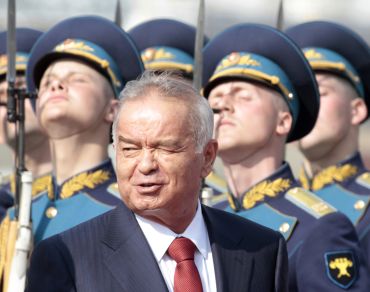
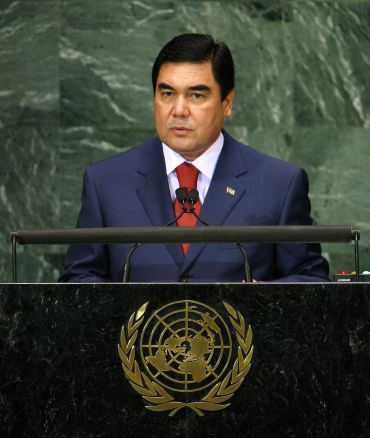
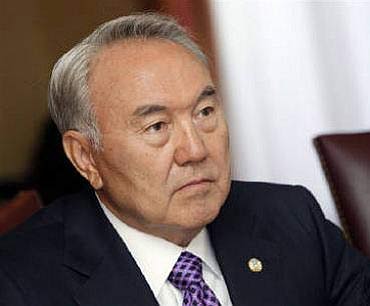
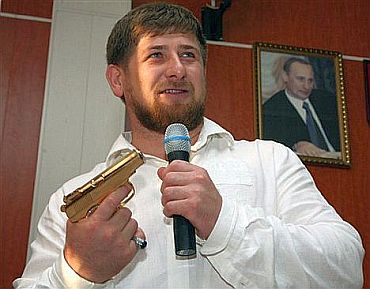

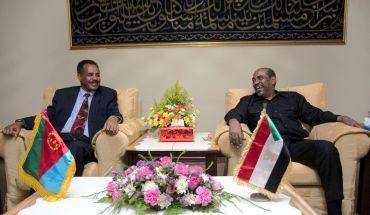
article